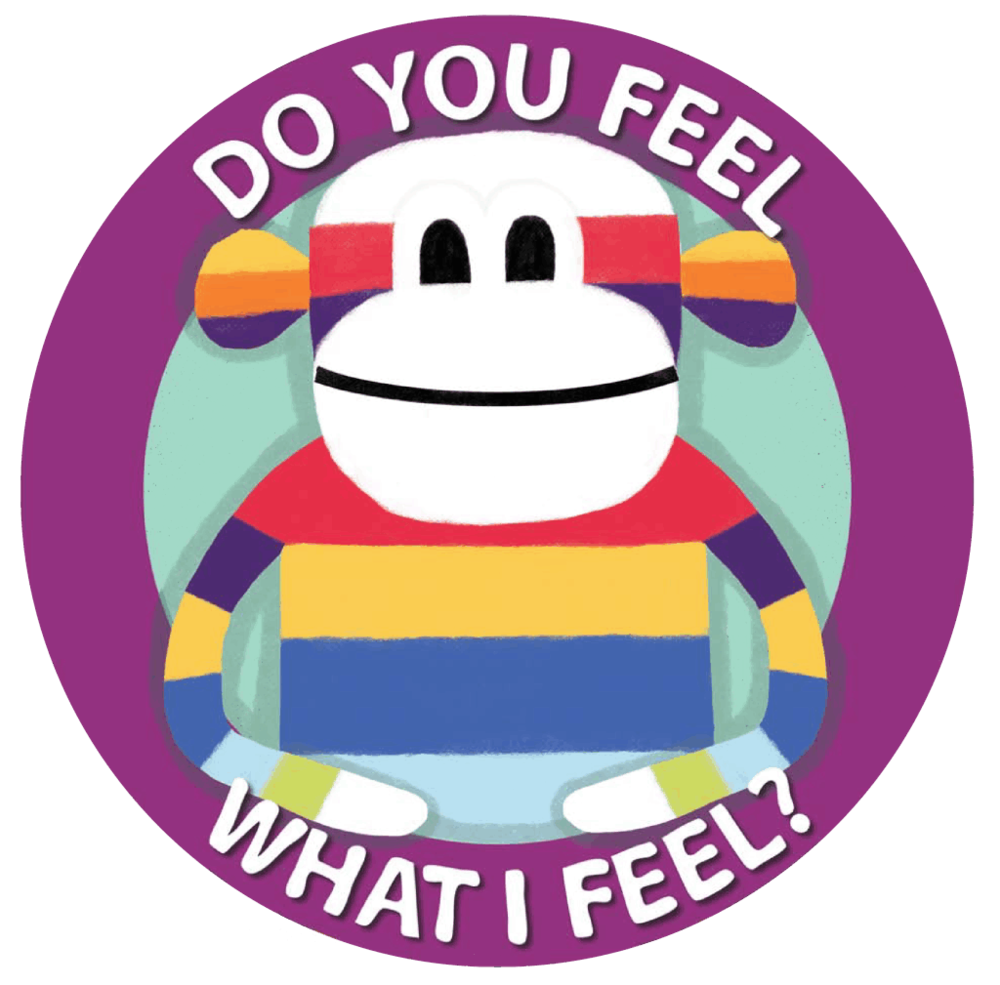ADVICE FOR PROFESSIONALS
Monkey Bob and the Do You Feel What I Feel? toolkit were created after we spotted a gap in resources for professionals working with early years children.
We know these formative years are a crucial time for teaching children key messages around safety and feelings, which can be developed as they get older.
Do You Feel What I Feel? – 3 STAGES
We recommend using the Do You Feel What I Feel? toolkit in three stages:
| Not Now Bernard | A story book that lets children explore Bernard’s feelings and how he talks about them. |
| Helping Hands | Children create a helping hand picture identifying the important adults in their lives. |
| Monkey Bob | Children meet Monkey Bob and are encouraged to talk about their feelings. |
You can order Monkey Bob on his own from our online shop. We also have Worry Monsters and other professional resources available to buy.
Do You Feel What I Feel? – Key messages
We keep our language simple so that children under seven can understand our messages clearly. The Do You Feel What I Feel? toolkit teaches children the following key messages:
It’s not ok for anyone to hurt or frighten you or anyone in your family.
It’s always ok to tell someone you trust if you’re worried or frightened.
It’s always ok to keep yourself safe if you’re afraid.
Do You Feel What I Feel? – SAFETY PLANNING
The Do You Feel What I Feel? toolkit also introduces the idea of safety planning, with a focus on the question:
Who is/are the grown up/s that I can go to for help?
If you’re having a safety planning discussion with a child, why not download our free safety planning handout? Just click on the image below:
This handout is taken from our Keeping Yourself Safe booklet. You can buy a copy for just £2 in our online shop.
These key messages make the Do You Feel What I Feel? toolkit ideal for helping children who have experienced – or are at risk of – domestic abuse.
But they’re designed to help children develop the skills to communicate with the safe adults around them about all of their experiences – and to encourage healthy relationships with peers and adults – so they’re useful in lots of different settings.
Visit our resources page for more about supporting children and young people who have been affected by domestic abuse. Or contact the Monkey Bob team with your questions.

